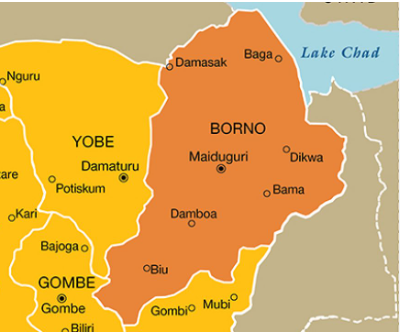The United Nations on Friday condemned the killing of more than 30 civilians in Gamboru Ngala Local Government Area of Borno State.
UN spokesperson, Stéphane Dujarric, disclosed this at a news conference held at the UN headquarters in New York.
Dujarric said,
“On Wednesday, more than 30 civilians were reportedly ambushed and killed in the village of Mukdolo. Several people were reportedly injured, and others are still missing.
“The victims were fishermen and farmers. They included both internally displaced people and host community members from the neighbouring Dikwa Local Government Area.
“Schmale said this attack is another horrific reminder of the real threats of violence and insecurity that displaced people and others, impacted by more than 13 years of conflict in the region, and they continue to face those challenges daily.”
Briefing on Niger, Dujarric said the UN and its partners, together with the government had launched a $583 million humanitarian appeal to help 2.7 million people this year.
He said another appeal, calling for more than 400 million dollars, was also launched today to support the Government’s efforts to bolster food security for internally displaced people, host communities, refugees and flood-impacted people, among others.
“Over the past six years, the number of people who need humanitarian assistance in Niger has more than doubled – from 1.9 million people in 2017 to 4.3 million this year.
The UN spokesperson said;
“Conflict and insecurity have increased chronic vulnerability, compounded by extreme weather conditions and poverty.’’
According to him, Niger is one of the countries in the Sahel most impacted by the effects of climate change and desertification.
He said every year, about 100,000 hectares of arable land were lost due to climate change and desertification.
He further said;
“Two million people are currently food insecure. This figure is likely to increase to 2.9 million during the lean season between June and August.
“2022 humanitarian response plan called for 553 million dollars, was 70 per cent funded.”


